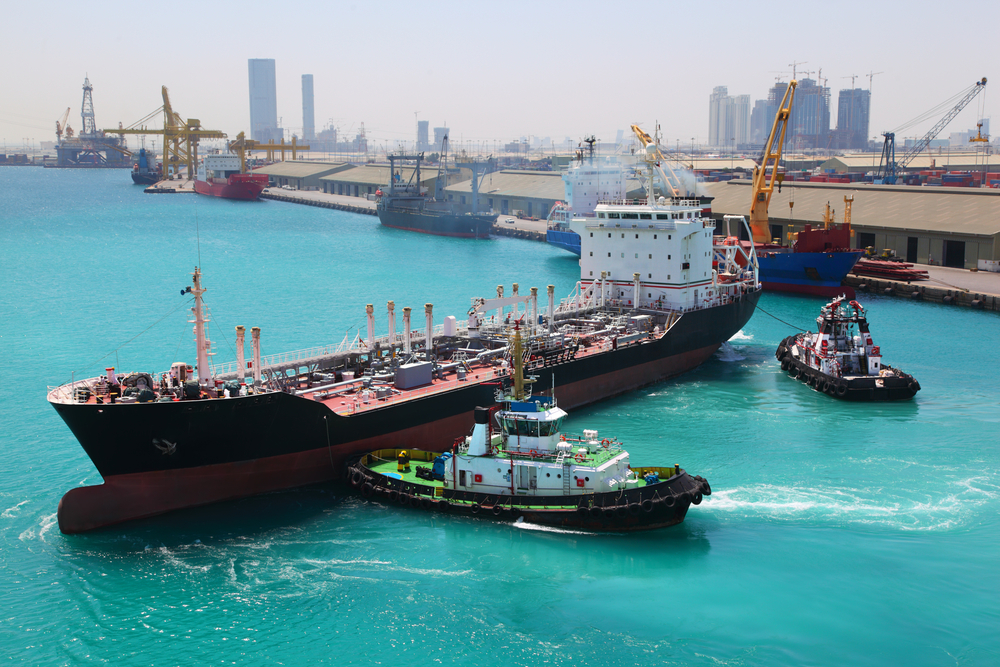Abu Dhabi Ports has launched a blockchain solution for the city’s shipping industry, the first such initiative in the island city. Developed through its subsidiary Maqta Gateway, the initiative is known as Silsal and aims to increase efficiency, transparency and security in the country’s shipping industry. As reported by Construction Business News on June 2, Silsal will combine blockchain technology with the latest in digital user identification to link all the stakeholders in the shipping and logistics industry.
Complementing Existing Systems
Noticing a market gap between exporters and importers, Abu Dhabi Ports decided to turn to the blockchain due to its immense benefits. Among these benefits is a reduction in paperwork which can be tedious and expensive. The blockchain also enables easy record-keeping that is accessible to everyone in the network, fostering transparency and trust. Silsal will complement Maqta’s existing Port Community System which the port has been using, and will initially only be available to freight forwarders and their clients.
The publication also reported that the platform was developed entirely by Maqta’s Digital Innovation Lab. It was subsequently thoroughly field tested by Abu Dhabi Ports in association with its partners. Maqta also developed its own form of digital identification which will be used in concert with Silsal. As a result, it will be able to encrypt all the necessary documentation without running the risk of unauthorized access through password hacks.
Speaking about the project, the CEO of Maqta Gateway, Dr. Noura Al Dhaheri, described it as a key step in the digitization of trade.
Technology is a crucial driver for the future of the shipping, logistics, and trade industry; and blockchain is a key step in the digitization of trade. Through Silsal, we will be offering the trade community secure and integrated access to blockchain technology, with the added value of cost and time savings through real-time track and trace, reduction in paperwork, and ease in extracting vital information to receive live updates.
The CEO of Abu Dhabi Ports, Captain Mohamed Juma Al Shamisi, was full of praise for the platform as well, saying it will give the port the ability to contribute to the country’s social and economic development through sustainable innovation. While expressing great pride in Silsal’s being the first home-grown blockchain technology in Abu Dhabi, he hailed it as a key step in the development of a knowledge-based UAE economy.
At Abu Dhabi Ports, we strive to invest in cutting-edge technological innovations that not only bring immense benefits to the trade community but also play a role in the transformation of the UAE to a knowledge-based, competitive economy. This achievement will help to further augment Abu Dhabi’s position as a center for innovation in logistics and trade
Blockchain technology has continued to attract attention from the shipping industry as more companies recognize the great benefits it offers. One of the pioneers in this industry is the Danish shipping conglomerate AP Moller-Maersk Group. The largest shipping company in the world, Maersk, recently launched the first-ever blockchain platform for marine insurance. The platform, known as Insurwave, is expected to handle over 500,000 transactions and manage over 1,000 vessels.
This wasn’t Maersk’s first interaction with blockchain technology. In January, the Copenhagen-based company announced a partnership with IBM which aims to establish a blockchain standard for global trade. The platform promises to build a global network of interconnected corridors linking all the stakeholders in this vast industry, and already has Dow Chemical, U.S. Customs and Border Protection, Tetra Pak, and the Customs Administration of the Netherlands among its clients.

